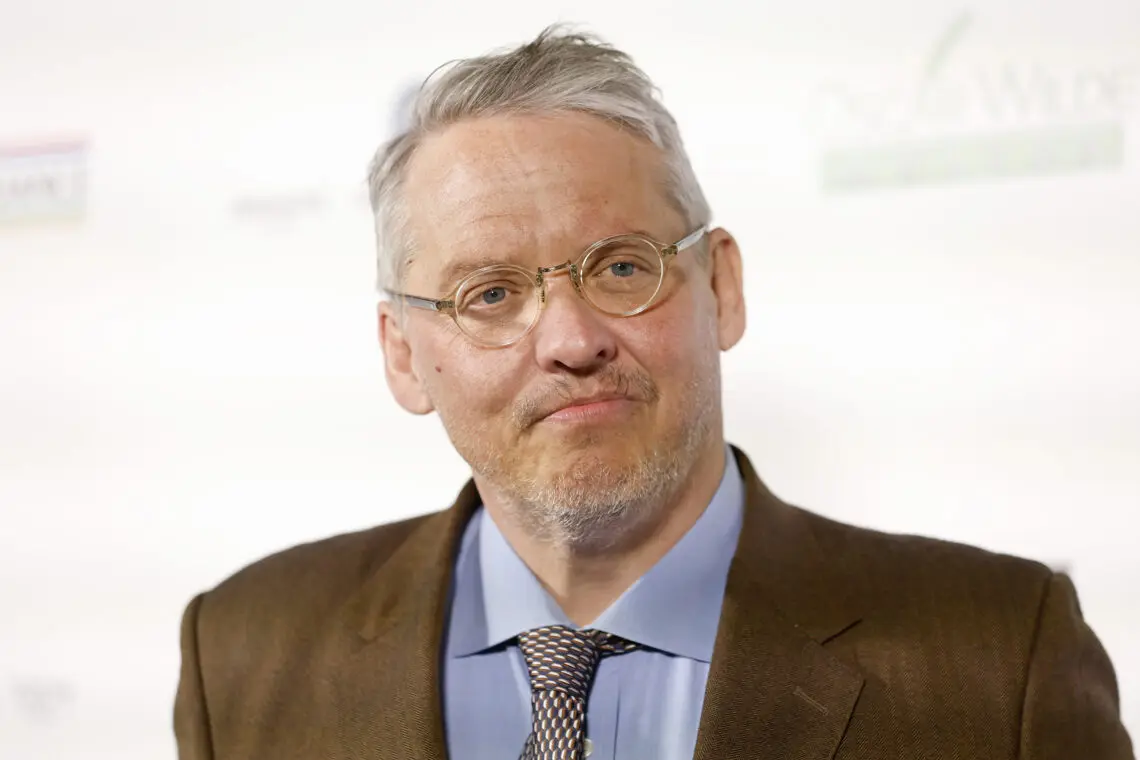Adam McKay’s political pivot: From Democratic ally to Green Party hopeful
A director’s discontent
Director Adam McKay, best known for “The Big Short” and “Don’t Look Up”, took to the digital realm to express his dissatisfaction with the Democratic Party as Donald Trump advanced in the U.S. presidential election. McKay’s social media posts reveal a profound shift in his political alignment, as he signals his intent to switch to either the Green Party or the Working Families Party.
In an evocative post, he shared an update link for voter registration, stating, “It is time to abandon the Dem Party. I’m registering Green Party or Working Families. But am open to ideas.” This announcement encapsulates his growing discontent with his former political home.
Adam McKay during a film promotion event
Advocacy and past endorsements
McKay has historically been a staunch supporter of the Democratic Party. He notably endorsed Bernie Sanders in both the 2016 and 2020 presidential elections. Demonstrating his progressive bent, McKay joined the Democratic Socialists of America in 2019. His activism extends beyond electoral politics; he has been a vocal advocate for urgent climate action and civil rights.
In October 2023, McKay signed an open letter addressed to President Joe Biden, emphasizing the importance of a ceasefire in Gaza. This act underscores his unwavering commitment to humanitarian causes and peace.
A biting critique of the Democratic strategy
Taking to social media during the tense election night, McKay unleashed a stinging critique of the Democratic Party’s electoral tactics. He highlighted several strategic missteps, stating, “Who would have guessed lying about Biden’s cognitive health for 2 yrs, refusing to do an open convention for a new nominee, never mentioning public healthcare & embracing fracking, the Cheneys & a yr long slaughter of children in Gaza wouldn’t be a winning strategy?”
His sarcastic remark, “Anyone with half a brain?,” underscores his frustration. McKay also questioned the intellectual rigor of the liberal base, noting, “But I thought liberals’ whole thing is being smart? It’s not? They actually just blindly cheer the parade of rickety optics wrapped up in New York Times fonts that is the modern Dem Party?”
A call for reflection
McKay’s final thoughts on social media call for a significant overhaul within the Democratic Party. He provocatively suggested that it’s time for the “dusty hacks & careerists to spread their feathers wide post-election and blame Russia and third-party candidates. That should fix things.” This comment indicates his belief that the current Democratic leadership’s myopic strategies are profoundly flawed.
With Trump nearing the 270 electoral vote threshold after clinching Pennsylvania and other key states, McKay’s condemnation touches a raw nerve among progressive circles and highlights broad disillusionment with mainstream Democratic politics.
Voting booth during U.S elections
Broader implications in Hollywood and beyond
McKay’s vocal shift poses intriguing questions about the broader cultural and political influence of Hollywood. As a respected figure in the entertainment industry, his political disillusionment may inspire similar sentiment among peers and influence discourse within and beyond the industry.
The intersection of politics and entertainment has long been a fertile ground for advocacy and change. Figures like McKay, who use their platforms to challenge the status quo, play a vital role in shaping public opinion and fostering critical dialogue. This phenomenon is especially significant given that celebrities often bridge the gap between the elite and the everyday citizen, often prompting deeper engagement with pressing issues.
Reflecting on McKay’s filmography
For a comprehensive understanding of McKay’s ideological journey, one can explore his rich filmography. His movies often tackle complex societal issues with a blend of satire and realism, providing insightful commentary on the state of the world. Both “The Big Short” and “Don’t Look Up” serve as prime examples of his ability to marry entertainment with thought-provoking critique, making complex financial and environmental crises accessible to a broad audience.
The future of political alignments
Adam McKay’s recent statements not only highlight his personal political evolution but also echo a wider sentiment of disillusionment among many progressives. As the political landscape continues to shift, the alignment and re-alignment of influential figures like McKay will play a crucial role in shaping the dialogue and strategies for future elections.
These evolving political dynamics remind us that the quest for effective governance and accountability is an ongoing journey. McKay’s pivot away from the Democratic Party signifies a call for deeper introspection and a reevaluation of priorities and strategies within the progressive movement.
Stay tuned for more insights into the political and social landscape, and don’t forget to share this article on your preferred social media platform. Follow us for continued updates and in-depth analysis!

 Italian
Italian









